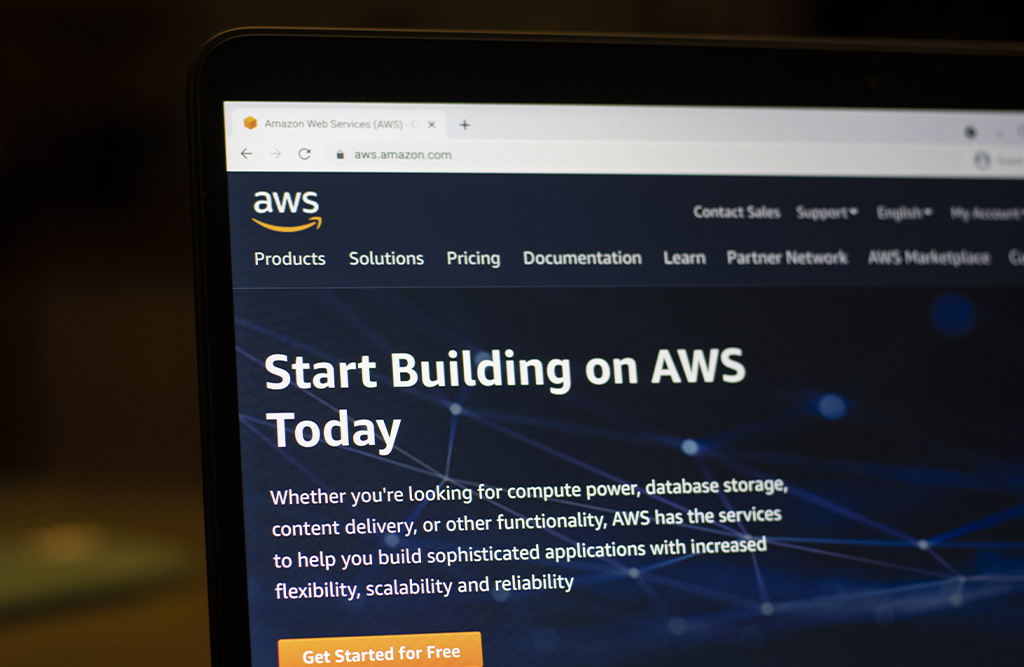Amazon Web Services: The Building Blocks of Cloud Computing
What is Amazon Web Services?
Amazon Web Services is the pioneer of cloud computing and was the first to offer modern cloud infrastructure services back in 2006. So, what exactly is cloud computing and what does it do?
According to Amazon, AWS is a major digital tool and service that frees up companies to focus on their own products and services without worrying about the growing pains that come with implementing a digital infrastructure.
“Instead of buying, owning, and maintaining physical data centers and servers, you can access technology services, such as computing power, storage, and databases, on an as-needed basis.” — Amazon
That answer, while comprehensive, doesn’t really capture the magnitude of what AWS accomplishes.
Why is AWS Important?
According to the Seattle Times, AWS “enables glitch-free Netflix streaming. It hosts digital drug-design tools of the kind that led to Moderna’s COVID-19 vaccine. The Seahawks use its computing power to analyze game data” and the “infrastructure also supports Amazon logistics, helping route more than 2.5 billion packages every year to the right address.
Not only are its practical applications seemingly endless for businesses and industries of all types, it works sympatico with companies who might be considered competitors, like Netflix.
Netflix relies on AWS to do the heavy lifting of managing the infrastructure required to make Netflix the top-tier viewing experience it is today. This partnership creates operational agility for Netflix to the extent that it can focus on what it does best (delivering high quality movies and shows from their in-house production team) without having to worry about the complex and mundane issue of hosting.
Strategic Partnerships
But wait — isn’t Prime Video an avenue for Amazon to compete with Netflix? Why would Amazon let Netflix host on AWS?
That’s a fair question. The simple answer is that Amazon stands to gain much more revenue from Netflix’s success than it does by competing with it directly.
Netflix is a niche company with a very specific product (movies and TV shows) that operates more like HBO, hence the plethora of Netflix original content being pumped out in the last several years. Amazon, on the other hand, is an ecommerce marketplace, a tech solutions provider, and a digital innovator. Although Prime Video has its own in-house studio, it is simply one division within a massive company that offers a wide range of products and services.
From its inception, Amazon has been a curator and seller of previously created content and products, starting with books. That model has largely stayed the same with its acquisition of streaming rights for Prime Video and it’s free streaming platform, IMDb TV, the latter of which focuses on leveraging the insane growth of OTT advertising.
The “Lego Era” of Tech
Many incorrectly assume that just because a company is large, like Netflix, that they must be building everything from the ground up. But when it comes to the “build it or buy it” model of tech solutions, there’s no reason that every company must build their own infrastructure to support their end goal. In fact, that was the old way of doing things.
Before AWS, most engineers for a given company split time 70/30 between building digital infrastructure and developing new products. Now, it’s the opposite. Since AWS works as the foundational building blocks of the internet as we know it, companies are empowered to build their businesses with far less capital, giving rise to app-based startups like Airbnb.
As Amazon grows and evolves, it has become almost a utility in some regards — a necessary piece of infrastructure that allows thousands of companies and millions of entrepreneurs to get a head start.
LATAM Expansion
With a ubiquitous presence across the globe, Amazon also has plans to expand AWS in Mexico, building the country’s first ever AWS “local zone.” While AWS operates as a cloud service, it still requires physical infrastructure to support the various locations it serves. Think of it like a radio tower with a set range — with more countries and large cities using streaming services like Netflix and cloud-based gaming, the more local hubs are needed.
Mexico’s first local zone — set to open in Q1 of 2023 — will be located in Querétaro with supporting offices opening shortly thereafter in both Guadalajara and Monterrey. This comes right in time as demand for cloud services has grown 31% in the region since 2020.
According to Jaime Vallés, AWS Vice President for Latin America, “the cloud computing market in LATAM is worth a potential $500 billion USD,” with the Mexican market alone expected to grow from $1.4 billion in 2021 to $2.7 billion by 2025.
But for AWS, it’s not just about growth, numbers, and business opportunities…
Beyond Business
In the wake of the COVID-19 pandemic, along with the ever growing healthcare needs across the globe sans a pandemic, AWS launched the Health Equity Initiative in 2021.
In Amazon’s own words, it’s “a three-year, $40 million commitment to support organizations globally that are inventing and scaling new ways to promote equal access to health care and address social determinants of health.”
In its first year alone, $14 million worth of cloud credits were awarded to 90 different organizations who are set to take on these challenges.
“Innovations range from a mobile technology-based taxi service for women in labor needing emergency care in Tanzania and Lesotho to genomic sequencing technology that is making it easier to address COVID-19 and other diseases in Africa,” says Max Peterson, Vice President of Worldwide Public Sector at AWS.
What once started as a way to help businesses scale easily and evolved to help us better stream movies, is now emerging as an innovative platform that can support life-saving technologies and actionable patient data. How’s that for a little 3-letter acronym?
If you’re looking to grow your business on Amazon, we can help! Reach out to us and we’ll find the right solution for you.


